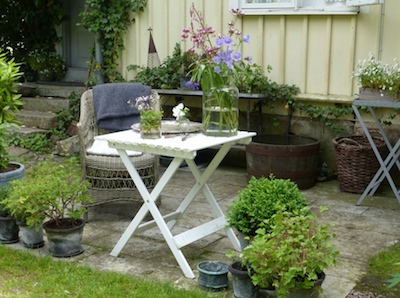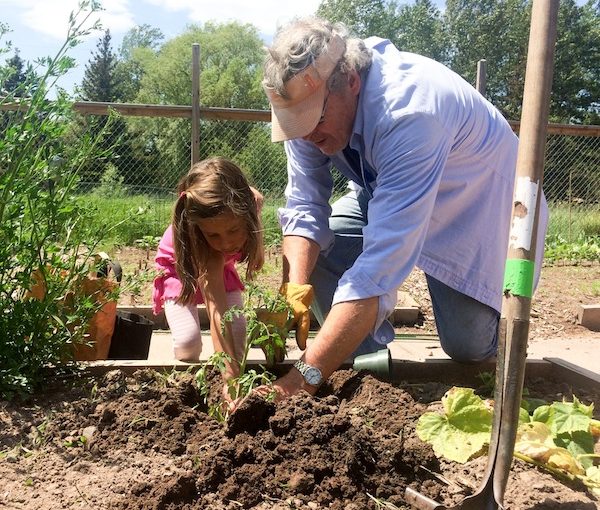People who spend time gardening, doing yard work and have direct contact with soil feel more relaxed and happier. (photo by Brad Greenlee)
It’s natural to long for spring when it’s cold outside. But there’s a good reason why you may pine for green. Living landscapes are an important part of the outdoor lifestyle that North Americans enjoy, but the benefits go beyond the barbeque and backyard baseball. Green spaces are necessary for our health.
“The advantages of grass and landscaping surpass the usual physical benefits that result from outdoor activity,” said Kris Kiser, president and chief executive officer of the Outdoor Power Equipment Institute (OEPI). “Numerous studies have found that people who spend more time outside or are exposed to living landscapes are happier, healthier and smarter.”
Researchers have studied the impact of nature on human well-being for years, but recent studies have found a more direct correlation between human health, particularly related to stress, and the importance of people’s access to nature and managed landscapes.
Getting dirty is actually good for you. Soil is the new Prozac, according to Dr. Christopher Lowry, a neuroscientist at the University of Bristol in England. Mycobacterium vaccae in soil mirrors the effect on neurons the pharmaceutical provides. The bacterium stimulates serotonin production, which explains why people who spend time gardening, doing yard work and have direct contact with soil feel more relaxed and happier.
Children who are raised on farms, in a “dirtier” environment than an urban setting, not only have a stronger immune system but are also better able to manage social stress, according to the National Academy of Sciences.

Living near living landscapes can improve your mental health.
Researchers in England found that people moving to greener areas experienced an immediate improvement in mental health that was sustained for at least three years after they moved. The study also showed that people relocating to a more developed area suffered a drop in mental health.
Greening of vacant urban areas in Philadelphia reduced feelings of depression by 41.5% and reduced poor mental health by 62.8% for those living near the vacant lots, according to one study.
According to Dutch researchers, people who live within a half mile of green space – such as parks, public gardens and greenways – were found to have a lower incidence of 15 diseases, including depression, anxiety, heart disease, diabetes, asthma and migraines.
A 2015 study found that people living in areas with more trees had a boost in heart and metabolic health. Other studies show that tasks conducted under the calming influence of nature are performed better and with greater accuracy, yielding a higher quality result. Spending time in gardens, for instance, can improve memory performance and attention span by 20%.
Living landscapes can also make you smarter. Children gain attention and working memory benefits when they are exposed to greenery, says a study led by Payam Dadvand of the Centre for Research in Environmental Epidemiology in Barcelona. In addition, exposure to natural settings may be widely effective in reducing attention deficit/hyperactivity disorder symptoms in children.
Research has shown for adults, as well, that being around plants helps them concentrate better at home and at work. Charlie Hall, Ellison Chair in International Floriculture at Texas A&M, believes that spending time in gardens can improve attention span and memory performance by as much as 20%.
A National Institutes of Health study found that adults demonstrate significant cognitive gains after going on a nature walk. In addition, a Stanford University study found that walking in nature, rather than a concrete-oriented, urban environment, resulted in decreased anxiety, rumination and negative affect, and produced cognitive benefits, such as increased working memory performance.
Living landscapes also can help you heal faster. Multiple studies have discovered that plants in hospital recovery rooms or views of esthetically pleasing gardens help patients heal up to one day faster than those who are in more sterile or austere environments. Physicians are now prescribing time outdoors for some patients, according to recent reports, and Park Rx America is a nonprofit with a mission to encourage physicians to prescribe doses of nature.
All of these benefits reinforce the importance of maintaining our yards, parks and other community green spaces. Trees, shrubs, grass and flowering plants are integral to human health. Not only do they provide a place for people and pets to play, they directly contribute to our mental and physical well-being.

